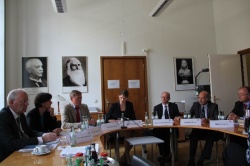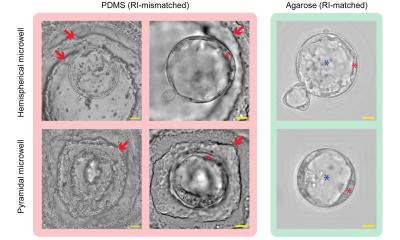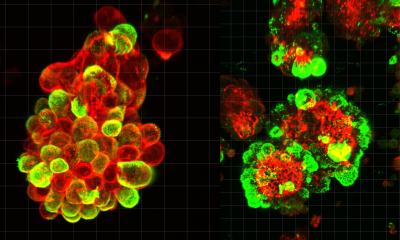Surgeons under National Socialism
A new publication exposes the effects on past members of the German Society of Surgery. Bettina Döbereiner reports


This August, sixty-six years after the end of WWII, the German Society of Surgery has published the first critical biographies of those who served as its Presidents during the National Socialism period. The German Society of Surgery 1933-1945. The presidents’ speeches was commissioned by the Society itself and composed by an independent commission of historians. Uncompromisingly revealing facts often eliminated in the past, the collection demonstrates the Society’s entanglement in the politics and ideologies of National Socialism.
As early as 1933, in the run-up to the annual assembly of the German Society of Surgery, all Jewish and politically dissenting speakers were told to withdraw their lectures. Those who did not follow the instructions in advance were addressed by the then President Professor Wilhelm Röpke in his opening speech: ‘I ask all speakers whose appearance could, due to the present-day national trend, provoke agitation and discord, to rescind, because the calm, orderly course of our conference and the dignity of the German Society of Surgery is more important than anything else.’ His message met with resounding applause. Later, the President wrote a note stating that the number of speeches had thus been ‘shrunk’ to the ‘reasonable level’ of 52 lectures, so the congress programme could be ‘done properly’.
Professor Hans-Ulrich Steinau, the Society’s President from 2006 to 2007, personally initiated the book. ‘We believe, that our own historical identity with our forefathers and also paragons must not be limited to the daily use of the Lexer Chisel and that, facing forced sterilisation and the cruel examinations of prisoners, we need to look for answers about the genesis of unscrupulous scientific curiosity, anticipatory obedience, careerism and the perversion of ethical grounds,’ he explained, during the book launch in Berlin this August.
Persecution did not stop with that speakers ban. From 1933 onward, Jewish physicians in the public sector were swiftly dismissed. Even for resident panel doctors (Kassenärzte) life became difficult. From 1938 onward they were prohibited from calling themselves doctors or physicians. Based on the Society’s register of members, medical historian Rebecca Schwoch, who, along with Professor Heinz-Peter Schmiedebach and Professor Michael Sachs, is a member of the independent commission of historians, has identified up to 217 members who suffered discrimination, dismissal, persecution, murder, or were forced to escape or driven into suicide. With data still lacking, the Society will continue to research the individual fates of those 217 members.
Even some highly respected forefathers of surgery were affected by the ‘Erbgesundheitspolitik’ (Politics of National Socialism aimed at eliminating ‘hereditarily defective people’). For example, in Munich’s surgical university hospital, headed by Professor Erich Lexer, inventor of the Lexer Chisel and the 1936 President of the German Society of Surgery, 1,050 so-called ‘hereditarily defective people’ were forcibly sterilised between 1934 and 1937.
Today, Prof. Schmiedebach warned, ‘We won’t have National Socialism any more, but we will face a scarcity of resources and the problem of their allocation. In this scenario prejudices could rapidly become virulent and respectively play a role in the distribution of resources.’ Therefore, he emphasised, it is still important to sensitise medical students to the subject and ensure they can quickly detect politically, culturally, economically or even scientifically induced prejudices.
Hopefully, the publication will contribute to that is objective.
20.10.2011










